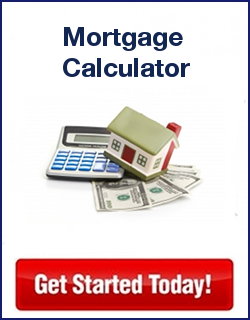 While December is typically a slow month for home sales, this past one saw the largest decrease in nearly 1-1/2 years, according to Reuters. Staff writers for the international news agency chalked it up to a decline after “the boost from the replacement of flood-damaged houses in parts of the South affected by hurricanes faded.”
While December is typically a slow month for home sales, this past one saw the largest decrease in nearly 1-1/2 years, according to Reuters. Staff writers for the international news agency chalked it up to a decline after “the boost from the replacement of flood-damaged houses in parts of the South affected by hurricanes faded.”
Newly-built home sales dropped as well, and Diana Olick of CNBC.com claims that “the culprit” is the combination of rising interest rates for mortgages and the new tax law. “Homebuyers increasingly can’t afford what they want,” Olick laments.
Obviously, there is a lot more to falling home sales than one or two economic variables. If you are hoping to sell your home this year, read on to find out how rising interest rates and other factors may impact not only your ability to sell, but to get your desired price, as well.
The market is changing
In 2008, in its efforts to fight the recession and stimulate frozen credit markets, the Fed set the benchmark interest rate at 0.25 percent. When rates are low, confidence increases and, today, there are plenty of buyers in the market for a home.
When mortgage rates rise, however, a certain number of potential homebuyers get priced out of the market. For instance, an increase of 1 percent reduces purchasing power by slightly more than 11 percent, according to Ryan Fitzgerald at quickenloans.com.
“That means for a home purchase of $300,000, a 1 percent interest rate rise reduces buying power to just under $267,000,” he explains. When these folks drop out of the market, demand for homes lessens.
In turn, the decrease in demand puts pressure on home prices by increasing the supply side of the equation. We may see our currently fiery seller’s market transformed to a buyer’s market, with home prices plummeting as a result.
Other factors to consider
Politics may impact mortgage rates as well. Although many have expressed doubts that anything will be accomplished this year, Congress is considering making changes to Freddie Mac and Fannie Mae.
If nothing happens, or the wrong things happen, “interest rates will go up or loan limits will go down,” according to David Stevens, president of the Mortgage Bankers Association. So, even if the Feds don’t raise rates again (which is doubtful), Congress may end up causing an escalation.
There are reasons you chose to make Northern Virginia your home and those reasons may end up negatively impacting your home’s value. In January we learned that Prince William County is now the “second-most-populous jurisdiction in Virginia,” according to the Washington Post. So, the secret is out and homebuyers are moving here in droves.
And, while homeowners sit on the sidelines, home builders have been busy trying to accommodate all the newcomers. In fact, building activity in Prince William rose 9 percent last year, with 1,414 housing starts. What this means for you, as a potential home seller, is that if building activity continues to increase, the supply of available homes will grow, pushing prices down.
Rising interest rates, Congress and home builders will all play a large role in determining how much you’ll get for your home, should you decide to wait until later in the year to sell. Yes, it sounds trite, but now truly is the best time to sell your home.












Speak Your Mind
You must be logged in to post a comment.